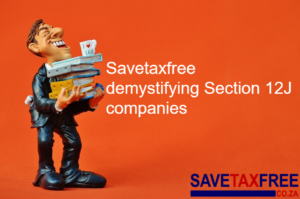Retirement Annuities (RAs)

By Leya Mall | 11 July 2018
Welcome readers, to the the Tax-Saving South African, where I walk with you in your personal finance journey through a range of financial themes twice a month.
If like me, you are, new to the tax saving game, this bi-monthly series called The Tax Saving South African will be helpful to navigate various tax-free saving options in a step-by-step process.I have recently completed my post-graduate studies in Media Management from Rhodes University and entered the sometimes daunting but always exciting world of work. Naturally, this process entails managing my personal finances – a crucial task but one for which, unfortunately, schools and tertiary institutions do not prepare you.
This article focuses on a very important consideration for the future, a retirement fund. If like me this concept is fairly new to you, you will need to learn more so that you can not only start planning your future retirement but actually complete the process from start to finish.
Why is the concept of a retirement plan so important? Research by the London School of Economics, backed by wider research, found that only 6% of retirees are able to maintain the same living standard as their pre-retirement years. You want to be part of that 6%. Right?
You’ve probably heard before that you should start saving as soon as possible for retirement – but its importance cannot be overemphasized. The benefits of compounding returns on your investment are almost magical. We’ll delve into compounding in a future article.
To ensure you are not a part of the 90% of South Africans who fail to plan for their retirement, the following steps will be useful.
Step 1: Ask your employer if the company has a specific RA fund. If not, research options from various providers, keeping an eye out for benefits that suit your individual needs. [Note that pending retirement reforms may make it compulsory for all employers to offer an in-house RA for employees.]
Step 2: If your company does have a structured retirement plan, you may choose to invest in it or alternatively you have the option of securing your own RA plan. It is not compulsory to use the company RA.
Step 3: Before signing up for an RA, decide how much you want to contribute each month and inform your employer for tax purposes. The government offers a tax deduction of up to 27.5% a month of your taxable income for your RA contributions, capping the figure at R350,000 a year.
To put this into context, imagine you choose to invest 15% of your salary (as recommended by CEO of 10X, Steven Nathan). If you earn R15,000 a month, you’ll be paying R2,250 into your RA each month.
Here’s the great bit: the income tax you pay every month will fall to R1,122.75 from R1,527.75, saving you R405 a month or R4,860 a year. That would be an ideal amount to start investing in a tax-free savings account, generating returns from money that would have gone to the taxman. That’s another topic we’ll discuss in a future article.
Step 4: Over the years as you earn more and fall into higher tax brackets, the bigger this PAYE saving will be. 10x investments recommends that you continue contributing 15% of your total salary to your RA until you retire, maximizing your investment.
Step 5: Read that annoying disclaimer. The fine print your mother told you is so important … I’m afraid she was right.
One restriction in RAs is that in most instances you cannot withdraw funds before you’re 55, and at 55 you can only draw a third in cash, with heavy tax penalties. The idea behind that is to encourage long-term savings.
Most Importantly
Remember, your monthly RA payments are paying for yourself in future. It is a worthwhile investment because you want to retire comfortably. Don’t use your long-term savings to buy shiny things that may seem so important to you now. If you can’t pay for it out of your salary, don’t use your investment to buy it – or get into debt for it. That Gucci label won’t feed you when you’re old.
Continue to follow this series to become a wiser tax-saving South African!







